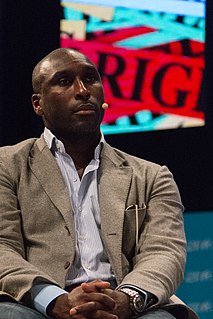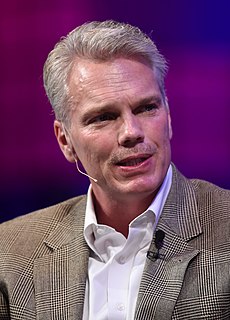A Quote by Meena Harris
You have to train managers to encourage their teams to be entrepreneurial.
Quote Topics
Related Quotes
I think everybody is in agreement that America is a great entrepreneurial nation. We have got to encourage that. Of course, we have to support small and medium-sized businesses. But you can have all of the growth that you want and it doesn't mean anything if all of the new income and wealth is going to the top 1 percent.




































